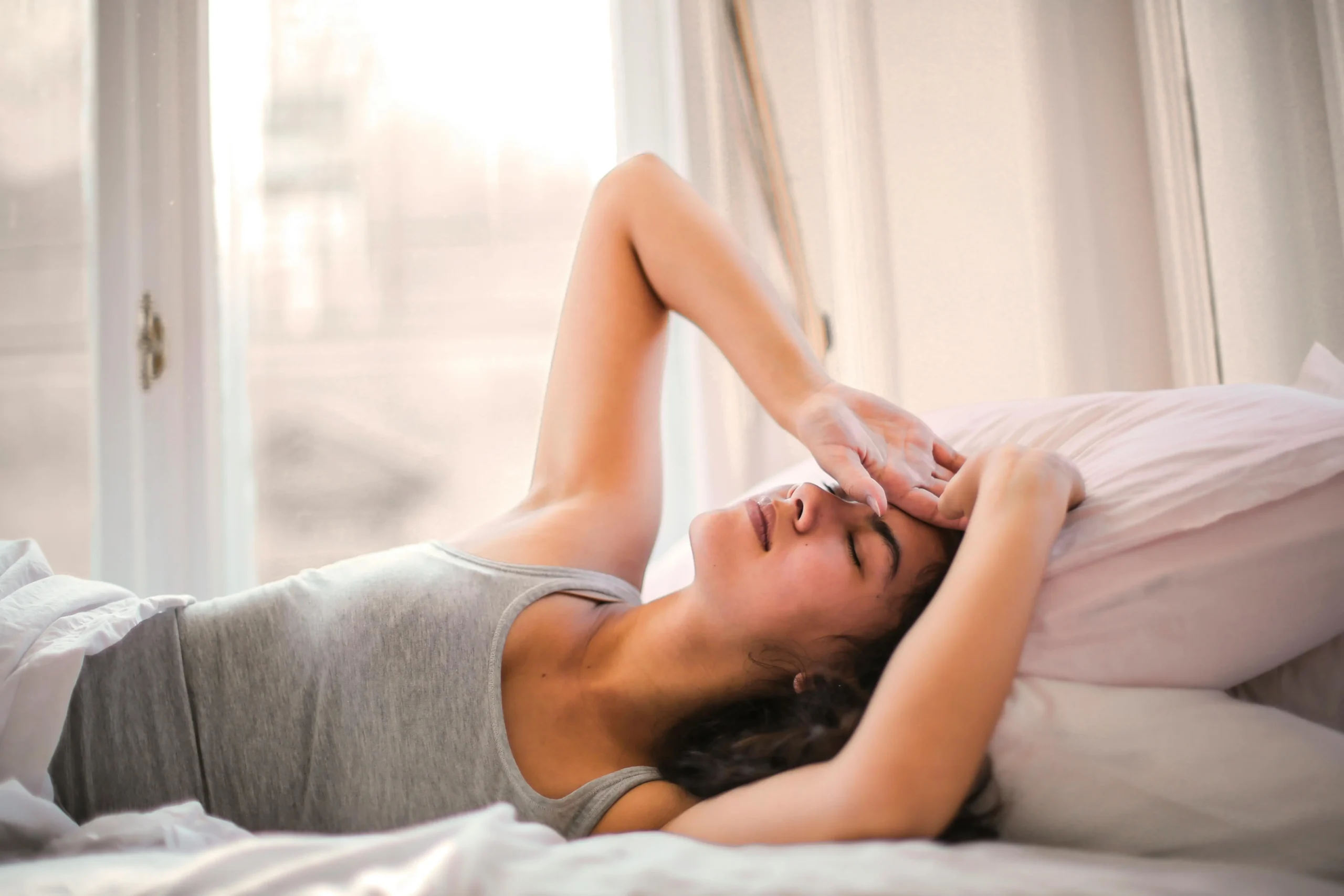Have you ever woken up drenched in sweat, feeling uncomfortable and frustrated? Sweating during sleep is a common issue that many people experience, and it can have various causes. While occasional night sweats are usually harmless, persistent sweating can be a sign of an underlying problem. In this article, we’ll explore the different reasons why you might be sweating in your sleep and provide practical solutions to address each cause.
Understanding Night Sweats: A Natural Response or a Health Concern?
Night sweats, or nocturnal hyperhidrosis, occur when you sweat excessively during sleep. This phenomenon is typically the body’s natural response to regulate core body temperature and maintain comfort. According to Natalie Barnett, Ph.D., the VP of clinical research for sleep tech company Nanit, occasional night sweating is usually not a cause for concern. However, it’s important to identify and address any potential underlying issues if night sweats become frequent or disruptive to your sleep.
In this comprehensive guide, we’ll examine the causes of night sweats and discuss practical steps to manage each one. We’ve consulted experts in the field, including Dr. Barnett and double-board-certified psychiatrist and sleep doctor Chester Wu, MD, to provide you with accurate and reliable information.
1. Heat and Humidity: Maintaining the Ideal Sleep Environment
One of the most obvious reasons for sweating in your sleep is an overly warm sleep environment. When the room temperature and humidity are high, your body naturally reacts by sweating to cool down. Dr. Wu suggests monitoring your room temperature and humidity levels to determine if they contribute to your night sweats. To create a cooler sleep environment, keep your bedroom temperature around 65 degrees, open a window, or use a fan. Additionally, consider the following factors:
– Bedding and Pajamas: Choose Breathable and Moisture-Wicking Fabrics
Your choice of bedding and nightwear can significantly impact your sleep comfort. Opt for breathable and moisture-wicking fabrics to promote airflow and prevent excessive sweating. Dr. Barnett recommends avoiding fabrics like polyester, nylon, and cotton and instead choosing materials such as wool, linen, bamboo viscose, lyocell, and hemp. Moreover, ensure your blankets and sheets are appropriate for the season, and consider using a light wool or down-filled duvet during warmer months.
2. Alcohol Before Bed: A Double-Edged Sword
While a nightcap might help you relax and fall asleep faster, it can also lead to increased sweating during the night. Dr. Wu explains that alcohol can raise your heart rate, relax your airways, and elevate your body temperature, all of which contribute to night sweats. To minimize this effect, consider swapping your alcoholic beverage for a calming alternative like tea, turmeric milk, or tart cherry juice.
3. Stress and Anxiety: Unveiling the Connection
If neither heat nor alcohol seems to be the culprit behind your night sweats, it’s essential to evaluate your stress and anxiety levels. Intense stress can trigger physiological changes in your body, including an increase in heart rate and the release of hormones, which can lead to sweating. Dr. Barnett suggests incorporating relaxation techniques into your nightly routine to reduce stress levels before sleep. Consider activities such as meditation, deep breathing exercises, or a warm bath to unwind and promote better sleep quality.
Furthermore, it’s important to note that stress can also cause nightmares and panic attacks during sleep, both of which can result in excessive sweating. If you find that stress is affecting your sleep and overall well-being, it may be beneficial to seek support from a healthcare provider or therapist.
4. Medication Side Effects: Unraveling the Culprit
Certain medications can cause night sweats as a side effect. Antidepressants, diabetes treatments, painkillers, and specific dietary supplements like calcium and niacin are known to induce sweating. If you suspect that your medication is contributing to your night sweats, it’s crucial to consult your doctor. They can evaluate your medication regimen and explore possible alternatives or adjustments to minimize the side effects.
5. Hormonal Fluctuations: A Gender-Specific Cause
Hormonal changes can play a significant role in nighttime sweating, particularly for women. Menopause, the menstrual cycle, and pregnancy are all periods when hormonal fluctuations can lead to increased sweating. Dr. Barnett recommends uncovering your extremities, such as your feet and neck, or placing a cool washcloth on your head to help cool down during hot flashes. If you experience severe symptoms or are concerned about the impact of hormonal changes on your sleep, consult with your healthcare provider for personalized guidance.
6. Medical Conditions: When to Seek Professional Help
If none of the above causes seem to apply to you, it’s important to consider your medical history and discuss your symptoms with a healthcare professional. While rare, some medical conditions can cause excessive sweating during sleep. Hyperhidrosis, a sweating disorder, is one possible cause. Other conditions that can contribute to night sweats include hypoglycemia, hormone disorders, bacterial infections, gastroesophageal reflux disease (GERD), autoimmune disorders, neurological conditions, and certain cancers such as leukemia and Hodgkin’s lymphoma. Night sweats can also be a symptom of obstructive sleep apnea, a sleep disorder characterized by airway relaxation and temporary breathing cessation during sleep. If you experience shortness of breath or suspect sleep apnea, it’s crucial to seek medical attention for proper diagnosis and treatment.
Conclusion: Taking Action for a Restful Night’s Sleep
While occasional night sweats are often harmless, persistent sweating during sleep can be disruptive and indicate an underlying issue. By understanding the various causes and implementing practical solutions, you can take control of your sleep environment and promote better sleep quality. Remember to maintain a cool sleep environment, choose breathable fabrics, minimize alcohol consumption before bed, manage stress and anxiety, and consult your healthcare provider if necessary. With these strategies in place, you can enjoy more restful nights and wake up feeling refreshed and dry.
Remember, it’s essential to listen to your body and seek professional advice if you have concerns about your night sweats or overall sleep health. By taking proactive steps, you can improve your sleep and overall well-being.
Disclaimer: The information provided in this article is for informational purposes only and should not be considered medical advice. Please consult with a healthcare professional for personalized guidance and treatment options.



